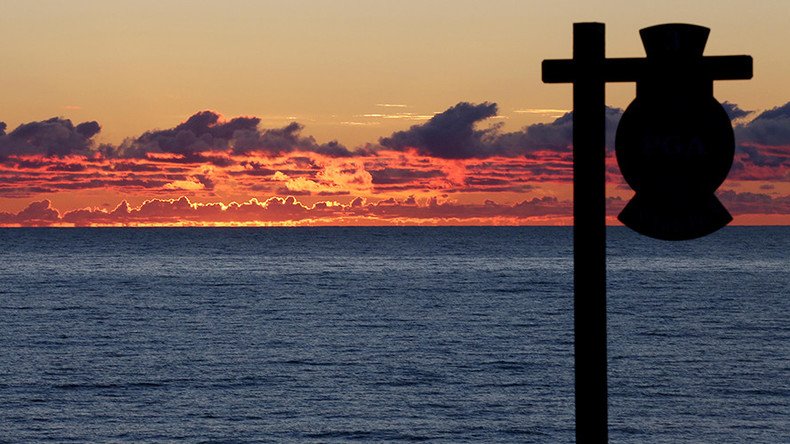Not a drop to drink: Ontario concerned about diverting Great Lakes water

Waukesha, Wisconsin needs water and would like to borrow some from its Canadian neighbors. However, Ontario is concerned that allowing the town to divert water from Lake Michigan will set a troubling precedent for the Great Lakes.
Waukesha, home to about 70,000 people, does not have much water in its aquifer, and the little is there is contaminated with high levels of radium, a cancer-causing element, The Hamilton Spectator reported. As a result, the city is looking east to Lake Michigan for a refill.
There is one big problem though: The current agreement between several Great Lakes region states and Ontario and Quebec prohibits diverting water away from the Great Lakes-St. Lawrence River basin. Although there are exceptions that can be made, some officials do not believe that it should be made for Waukesha.
Mary Muter, vice chair of Restore Our Water International (ROWI), told the Manitoulin Expositor that Waukesha has not sufficiently explored other options.
“Waukesha has a feasible alternative to meet its water needs,” she wrote to the Expositor. As it currently stands, the agreement would allow an application for diversion on the condition that there are no alternatives.
However, Muter says, “A July 2015 report by two independent engineering firms found that Waukesha does in fact have a feasible water supply alternative.”
In exchange for 10.1 million gallons (38.2 million liters) every day, Waukesha is offering to return treated water to Lake Michigan via the Root River. But, according to Muter, that could create another problem.
“The Root River has high levels of phosphorous and is officially designated as an impaired river because of this pollution,” she said, adding, “Although treated, Waukesha’s returned water could add additional phosphorus pollution to the already impaired Root River.”
Muter is not the only one with concerns. Ontario does not seem to be a fan of the idea, either. Waukesha is asking to be considered as an exception to the rule banning diversions due to the fact that it is partly in a county that straddles the border of the Great Lakes Basin.
Jason Travers, director of the Natural Resources Conservation Policy Branch at Ontario's Ministry of Natural Resources, told the Hamilton Spectator, "The Government of Ontario has identified a number of concerns relating to Wisconsin DNR's explanation of how Waukesha satisfies the 'straddling county' exception.”
The other concern is what kind of precedent it will create for other counties. Waukesha may have radium in their water, but they are not the only ones.
"The issue of increasing radium concentrations in public groundwater water supplies is occurring up and down eastern Wisconsin and is therefore not restricted to just Waukesha,” Travers said.
Tornados & storms wreak havoc in US Mid-West, Great Lakes area (PHOTOS, VIDEO) http://t.co/wCZThFHH30pic.twitter.com/b2uDzeDeGb
— RT America (@RT_America) June 23, 2015
First Nations tribes are not on board, either. Under the First Nation Water Accord, Supreme Court of Canada rulings and the Great Lakes Sustainable Water Resources Aggregate, First Nations tribes are to be consulted and involved on changes to the Great Lakes. However, they have not been enthused with the level of involvement they’ve been offered from Ontario.
Rhonda Gagnon, a policy analyst with the Union of Ontario Indians, told the Manitoulin Expositor that the Ministry of Natural Resources and Forestry (MNRF) in Ontario did not exactly help sell it to them, saying, “The MNRF only had a meeting with First Nations March 10; that’s not proper consultation time especially with a 10,000 page-detailed, lengthy document that our people would have to review by March 14.”
Overall, people on the Canadian side of the border are mostly concerned about what this could mean for their future. Mike Wilton, a member of Algonquin Eco-Watch, wrote a letter to the Great Lakes and St. Lawrence governors and premiers that said, “to allow such action from the Great Lakes Basin at this time would, in retrospect, be seen as a reckless and short sighted band aid approach, and would simply be ‘putting off the inevitable.’”













